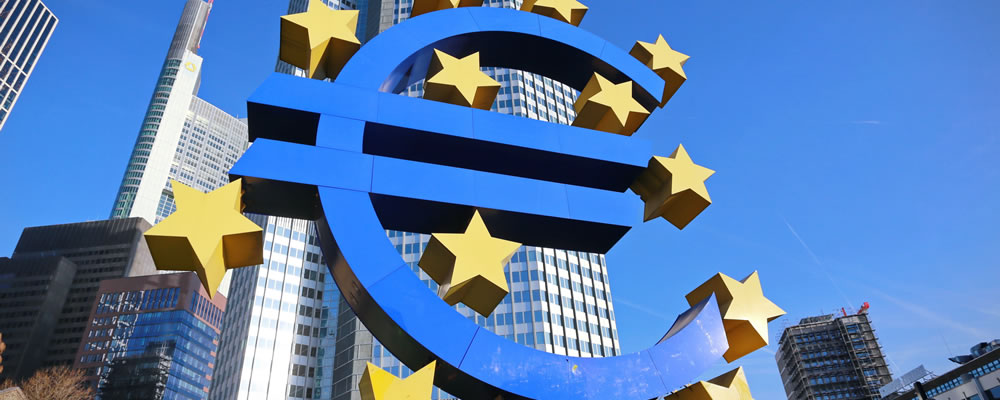European Central Bank (ECB) Uncertainty Weighs on Euro to Pound Exchange Rate
The Euro (EUR) has been unable to hold its ground against a strengthening Sterling (GBP) in recent sessions, as investors of the shared currency are awaiting Thursday’s European Central Bank (ECB) policy decision before making fresh moves.
The Euro to Pound (EUR/GBP) exchange rate has been tumbling since last week, when it dropped from 0.8889 to 0.8821. This week has seen EUR/GBP fall to the level of 0.87 for the first time since December.
The European Central Bank will be holding its January monetary policy decision on Thursday, and investors are hesitant to make any big moves on the Euro before then.
This is because the bank’s signals to markets in recent weeks have been perceived as mixed. The bank’s December meeting minutes hinted that the bank would be changing the language in its forward guidance soon, which was seen as a hint at hawkishness.
However, since then ECB officials have taken more cautious stances and have indicated that the Euro has been too strong in recent weeks.
Pound (GBP) Supported by Brexit Hopes and UK Borrowing Stats
The primary reason for the Euro to Pound EUR/GBP) exchange rate’s recent losses, as well as Pound strength in general, has been due to rising market hopes that Britain is on trajectory to see a ‘soft Brexit’ rather than a hard or ‘no deal’ Brexit.
Optimism from UK officials in recent weeks, as well as recent amenable comments from EU officials have made investors more hopeful that UK-EU negotiations will go smoothly in 2018, helping Britain to leave the EU with a respectable and bespoke trade deal.
Some analysts believe markets are perhaps too optimistic about the Brexit outlook at the moment, but do note that this is largely why Sterling has been strong. According to John Marley from Infinity International;
‘There is definitely a feeling that Brexit is now far more likely to be ‘soft’, which underestimates the risk for more problems ahead in our view but for the time being is leading to demand for GBP,’
On top of this, the Pound was supported by Monday’s UK public sector net borrowing results. The figure came in at £-0.98b, while the previous result was revised higher from £-8.12b to £-6.65b.
Eurozone Data Bolsters Euro (EUR) Exchange Rate Demand
Recent Eurozone data has continued a trend of coming in higher than analysts expected, but due to market uncertainty about the European Central Bank’s (ECB) tone on monetary policy it has only given the Euro a modest boost in demand.
Tuesday saw the publication of ZEW’s January economic sentiment surveys. All major prints from the survey beat expectations, indicating that analysts are even more optimistic about the Eurozone’s outlook for 2018 than expected.
The German economic sentiment figure rose from 17.4 to 20.4 rather than the predicted 17.8 while current conditions jumped from 89.3 to 95.2. The Eurozone’s overall economic sentiment index climbed from 29 to 31.8, beating the expected 29.7.
Euro to Pound (EUR/GBP) Exchange Rate Forecast: UK Wage Report in Focus
The Pound is likely to continue being the main driver of EUR/GBP movement until Thursday, when the European Central Bank (ECB) will hold its January monetary policy decision.
Tuesday’s ZEW surveys made the Euro slightly more appealing and Markit’s January PMI projections may do this too when they come in on Wednesday. Overall though, the Euro’s strength will be limited ahead of Thursday’s decision.
The biggest market focus on Wednesday will be Britain’s November job market report, which will see key figures including unemployment and wage growth stats published.
Pound investors will be particularly interested in UK wage growth data. If wage growth beats expectations it could strengthen hopes that wages are catching up to domestic inflation, which could mean the end of the household pay squeeze is in sight.
This may also put additional pressure on the Bank of England (BoE) to take a more hawkish tone on UK monetary policy, which would certainly make Sterling more appealing.
Towards the end of the week, French confidence stats from January and British Gross Domestic Product (GDP) data could also influence movement in the Euro to Pound (EUR/GBP) exchange rate.



